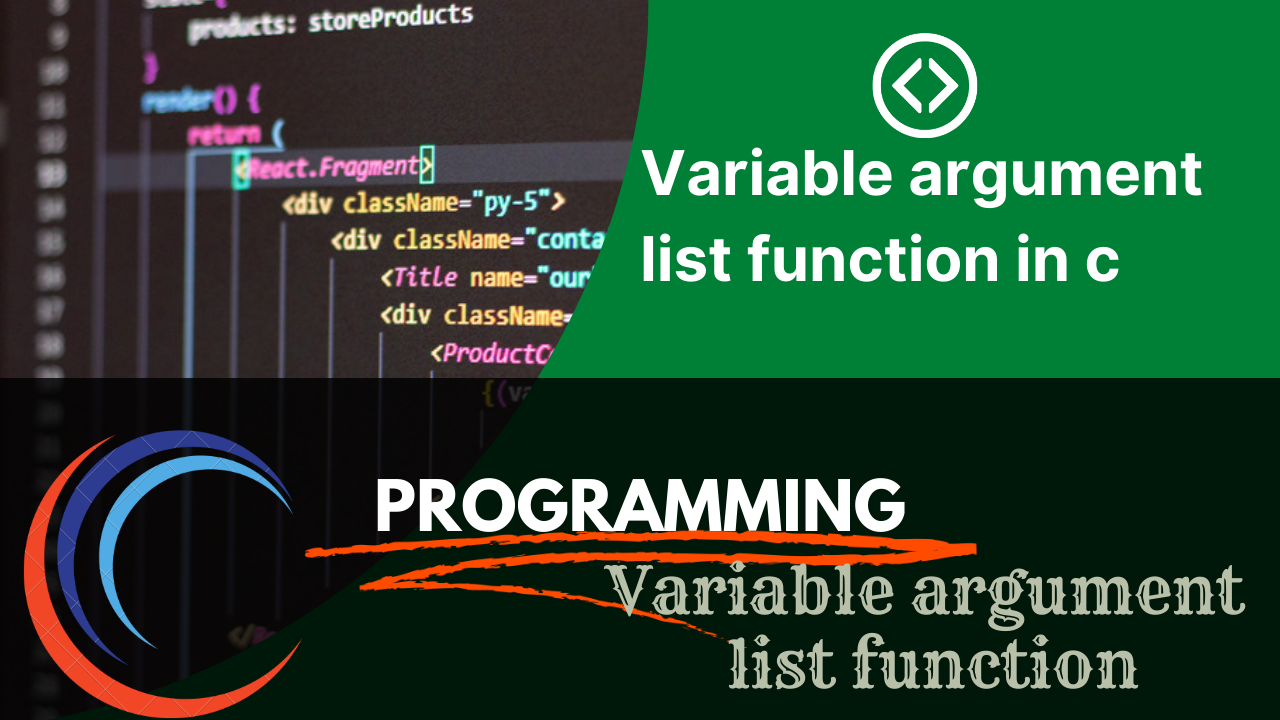
Variable argument list function in c
What is the variable argument list function in c
A variable argument list function in C is a function that can take a variable number of arguments. This is in contrast to a fixed argument list function, which can only take a fixed number of arguments.
Variable argument list functions are declared using the ellipsis (...) operator. The ellipsis operator indicates that the function can take a variable number of arguments. The following is an example of a variable argument list function:
void my_function(int n, ...) {
// ...
}The my_function() function can take any number of arguments, starting with the first argument, n. The variable argument list is accessed using the va_list type. The va_list type is a special type that allows you to iterate over the variable argument list.
The following is an example of how to use the va_list type to iterate over the variable argument list in the my_function() function:
void my_function(int n, ...) {
va_list ap;
// Initialize the va_list object
va_start(ap, n);
// Iterate over the variable argument list
while (1) {
// Get the next argument from the variable argument list
int arg = va_arg(ap, int);
// If the end of the variable argument list has been reached, break from the loop
if (arg == EOF) {
break;
}
// Do something with the argument
printf("%d ", arg);
}
// Clean up the va_list object
va_end(ap);
}The va_start() macro initializes the va_list object to the first argument in the variable argument list. The va_arg() macro gets the next argument from the variable argument list. The va_end() macro cleans up the va_list object.
Variable argument list functions can be used for a variety of purposes, such as:
- Printing a variable number of arguments to the console
- Calculating the sum of a variable number of arguments
- Finding the maximum or minimum value of a variable number of arguments
- Passing a variable number of arguments to another function
Example
Example of a variable argument list function that prints a variable number of arguments to the console:
void my_printf(const char *format, ...) {
va_list ap;
va_start(ap, format);
while (*format != '\0') {
if (*format == '%') {
switch (*(++format)) {
case 'd':
printf("%d", va_arg(ap, int));
break;
case 'f':
printf("%f", va_arg(ap, double));
break;
case 's':
printf("%s", va_arg(ap, char *));
break;
default:
printf("%%");
break;
}
} else {
printf("%c", *format);
}
++format;
}
va_end(ap);
}
The my_printf() function can be used to print a variable number of arguments to the console, just like the standard printf() function.
Conclusion
Variable argument list functions are a powerful feature of the C language. They allow you to write functions that can take a variable number of arguments. This can be useful for a variety of purposes.
Further Reading:
Variable argument list function in c
write a program for sprint function using variable argument list function in c
write a program to access nameless argument in c - variable argument list function
assignment of variable argument list function in c
Enroll Now:
[ C-Programming From Scratch to Advanced 2023-2024] "Start Supercharging Your Productivity!"
Contact Us:
- For any inquiries, please email us at [info@electro4u.net].
- Follow us on insta [ electro4u_offical_ ] for updates and tips.
Note: If you encounter any issues or specific errors when running this program, please let me know and I'll be happy to help debug them!

